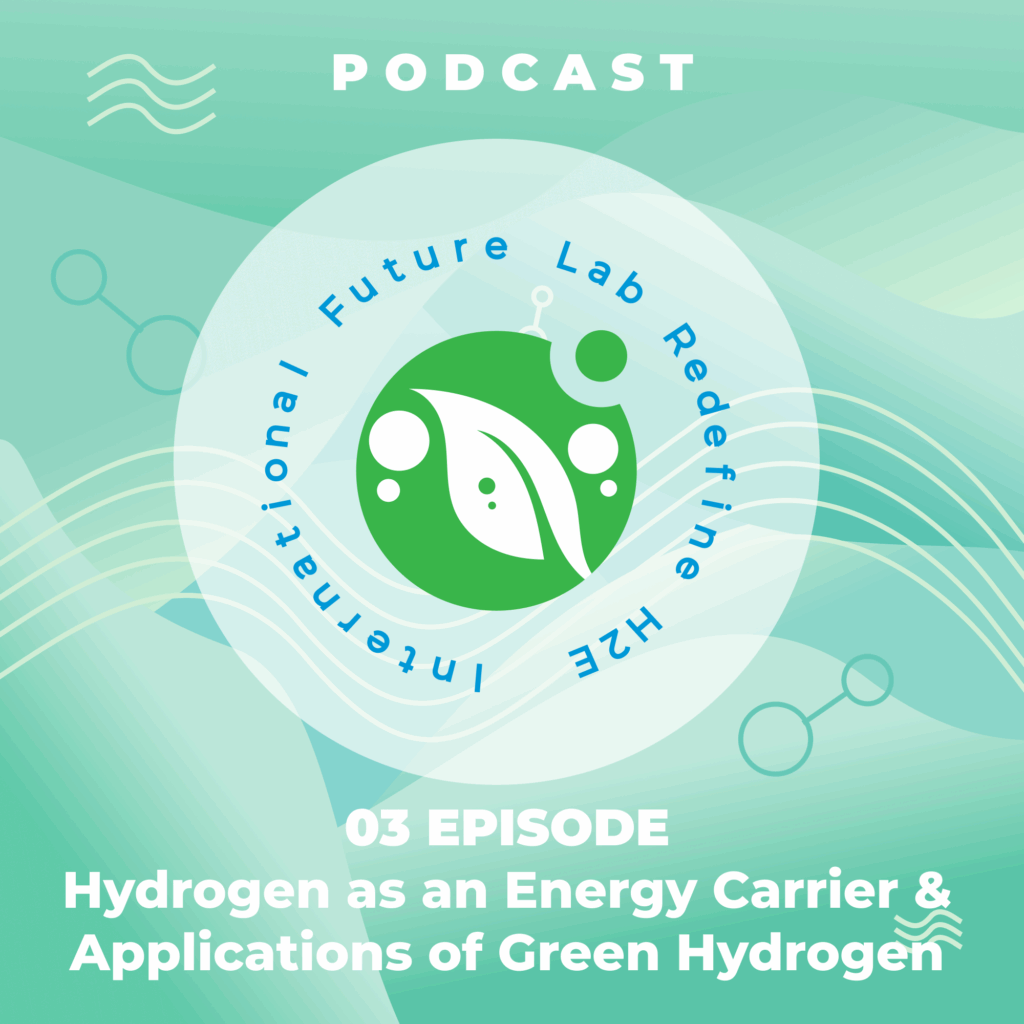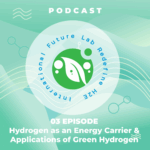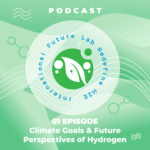EPISODE 03
Hydrogen as an Energy Carrier & Applications of Green Hydrogen
Rethinking hydrogen. Redefining energy.
Whether it’s technical innovations, political frameworks, or economic developments, we deliver in-depth insights into one of the most exciting technologies driving the energy transition: green hydrogen.
We apologize for any technical deviations in the audio recordings.

About the episode
In this episode, we examine concrete applications for green hydrogen across various industries. From energy storage and transportation to industrial processes, we highlight how green hydrogen can help reduce CO2 emissions and promote sustainability.
Topics:
- The use of hydrogen in different sectors: transportation, industry, energy production
- Comparison of hydrogen’s advantages and disadvantages compared to other energy carriers
- Technologies for hydrogen utilization: fuel cells, hydrogen combustion
Interview
From Production to Application: The Journey of Hydrogen as an Energy Carrier
An interview with Prof. Dr. Özgür Aydin from the Redefine H2E Team
Hydrogen isn’t just a buzzword—it’s already shaping how we think about energy, industry, and transportation. But what does hydrogen as an energy carrier actually look like in practice?
Why Hydrogen?
Hydrogen is abundant and, if produced sustainably, emission-free. Its versatility means it can be used in fuel cells to generate electricity, burned directly in engines, or used to store renewable energy over days, weeks, or even months.
Yet challenges remain. Storing hydrogen is energy-intensive, requiring high pressures or low temperatures, and the infrastructure for widespread use is still under development.
Fuel Cells vs. Combustion
Fuel cells are particularly promising for hydrogen utilization due to their high energy conversion efficiency, outperforming traditional combustion engines. However, fuel cells still face hurdles in cost and long-term durability, meaning hydrogen combustion remains under research in many sectors.
Where Is Hydrogen Used Today?
Currently, hydrogen is used mainly in oil refining and fertilizer production, but its role is expanding:
Transportation: Fuel cell vehicles like the Toyota Mirai are on the road, with trucks, buses, and demonstration projects for trains and planes in development.
Industry: Hydrogen is entering steel manufacturing and chemical production, supported by growing offtake agreements and large-scale projects.
Energy Production & Storage: Hydrogen is seen as a promising option to store renewable energy and transport it over long distances. Countries like Japan and Korea are piloting hydrogen-based power generation.
Looking Ahead
Prof. Aydin believes hydrogen will play a key role in decarbonizing our energy systems, with large-scale electrolyzer projects already underway and fuel cells poised to support clean energy in vehicles, residential areas, and industry.
Meet the Hosts

Norina Auburger
PR Team Assistant
I am part of the BMBF-funded Future Lab Redefine H2E, a project located at the Chair of Energy Systems of the Technological University of Munich, Germany.

Prof. Dr. Özgür Aydin
Visitig Professor
I am an expert for fuel cell technology and one of the guest researchers at the Technical University of Munich.




